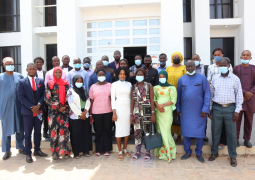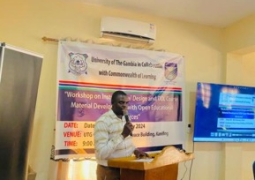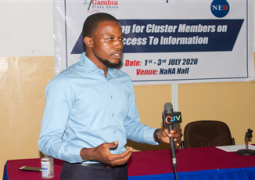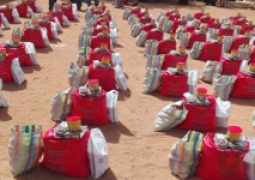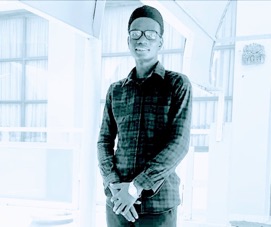
His times and era were during the period when modernity, and race for wealth was beginning to impinge on the lives of Muslims by the French in Senegal, West Africa.
Revered by many as one of the greatest saints in Africa, he was born in 1853 in the village of Mbackè Baol.
His parents; Morr Anta Sall and Mam Jarra Busso were all Islamic scholars. Mamine Mahram Mbacke, his grandfather was the founder of Mbackè, while his father was a Qadi and also a Fiqh adviser.
He was widely credited for establishing a link with the Muslims in southern Mauritania.
His mother, who taught him the early education of Islamic knowledge, also played an important role by exposing and teaching him the thematic areas of “Nahw” Arabic grammar, “Sarf” morphology and “Balagha” rhetoric. She also narrates to him stories of the Prophets.
His uncle Muhammed Busso taught him the Quran in a traditional way. Sheikh Amadou Bamba envisioned to do “khalwa” seclusion prayer at the hinterlands. The French at the coast were intensifying their occupation of the hinterlands, coupled with the anti Islamic mission.
During the French conquest of the interior part of Senegal, women were taken into slavery and abused by the French. At the age of 20 years, he wrote a book entitled “Mawāhibul Quddûs” (The Gifts Of The Holy Lord) and he started to give “fatwas"
He positioned himself strategically, as he shared a belief that “a scholar is better off in distancing himself from the rulers.”
In 1883 Alhagie Kamara of St Louis gave him Hijaza, and handed him the ritual turban. He also received lots of manuscripts from Sheick Sedia in Mauritania.
Sheikh Amadou Bamba later established “Da'iras” settlements for Islamic education. Many of these Da'iras were named as: “Da'iratul khouduss, Da'iratul hàfùrr and Da'iratul man’nam. In 1885 Sheikh Amadou Bamba went to hijra/migration to look for a place called TOUBA. It has a synonymous name of a TOUBA tree in paradise.
He later identified a tree and under this tree, he prayed and built his mosque in 1886. His dua/prayer “O'Allah secure this place, and make it a place of forgiveness and guidance.
And make it place of Sunnah, free from Bid'ah. And make it constantly a place of learning. A place of thought and the acquisition of knowledge, guidance, instruction, and correction”.
The mosque is said to be one of the largest mosques in Africa. Since then the city of TOUBA gained much recognition during his time.
He worked with Sheikh Ibra Faal, one of his strong disciples and Sheikh Anta Mbacke his half brother.
From the city of Cayor in central Senegal, where he hailed, Sheikh Ibra Faal has helped convert many non-believers from his town into Islam.
Envied by the popularity of Sheikh Amadou Bamba, the French insinuated that he was preparing to wage a war against them, and also disrupting the social order.
The French arrested him on August 10th 1895, and put him in a show trial that lasted for few hours. He was subsequently taken to Gabon and spent 7 years in prison. He wrote his prison memoir entitled “The Journey” below is the little excerpts from his memoir.
“I was taken away when I was reciting the Qur'an. On my journey with my captives I was doing my Zikr prayer along. With the blessings of Allah I was saved from all the conspiracies,”.
Upon his release from prison, large crowds gathered to commemorate the historic day known as “Magal”. The day is set aside to reflect the anniversary of his arrest, accompanied with Quranic recitation and prayers.
Sheikh Amadou Bamba died peacefully in his sleep in 1927. His first son Mustapha Mbacke became his ultimate successor. Every year, over three million Muslims worldwide visit this holy place of TOUBA.
Author: Sheriff Saidykhan, is the Managing Editor of The Outpost Media. He is also an associate fellow of “Maktaba”, an Islamic research centre for Islamic Scholars across West Africa.


